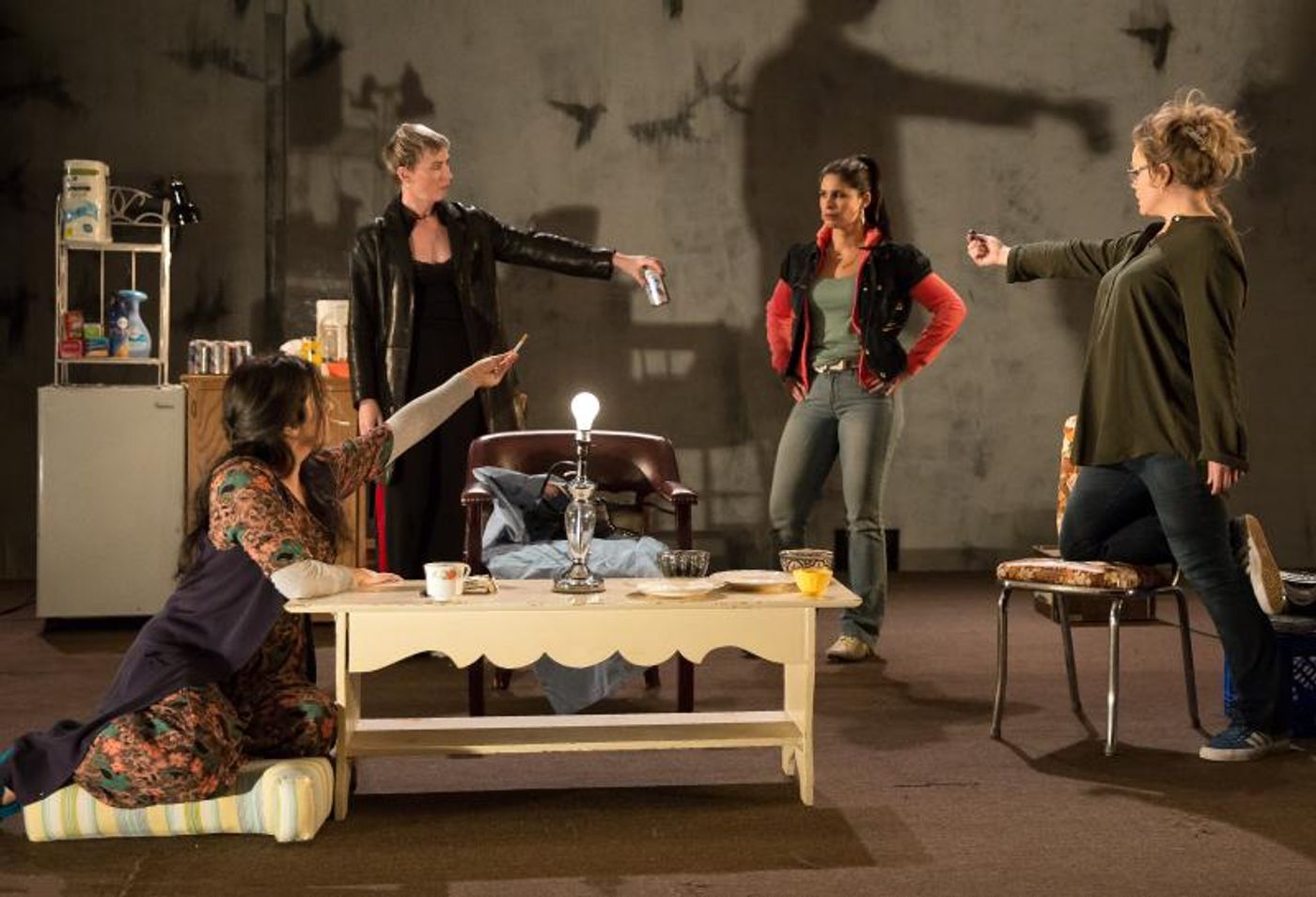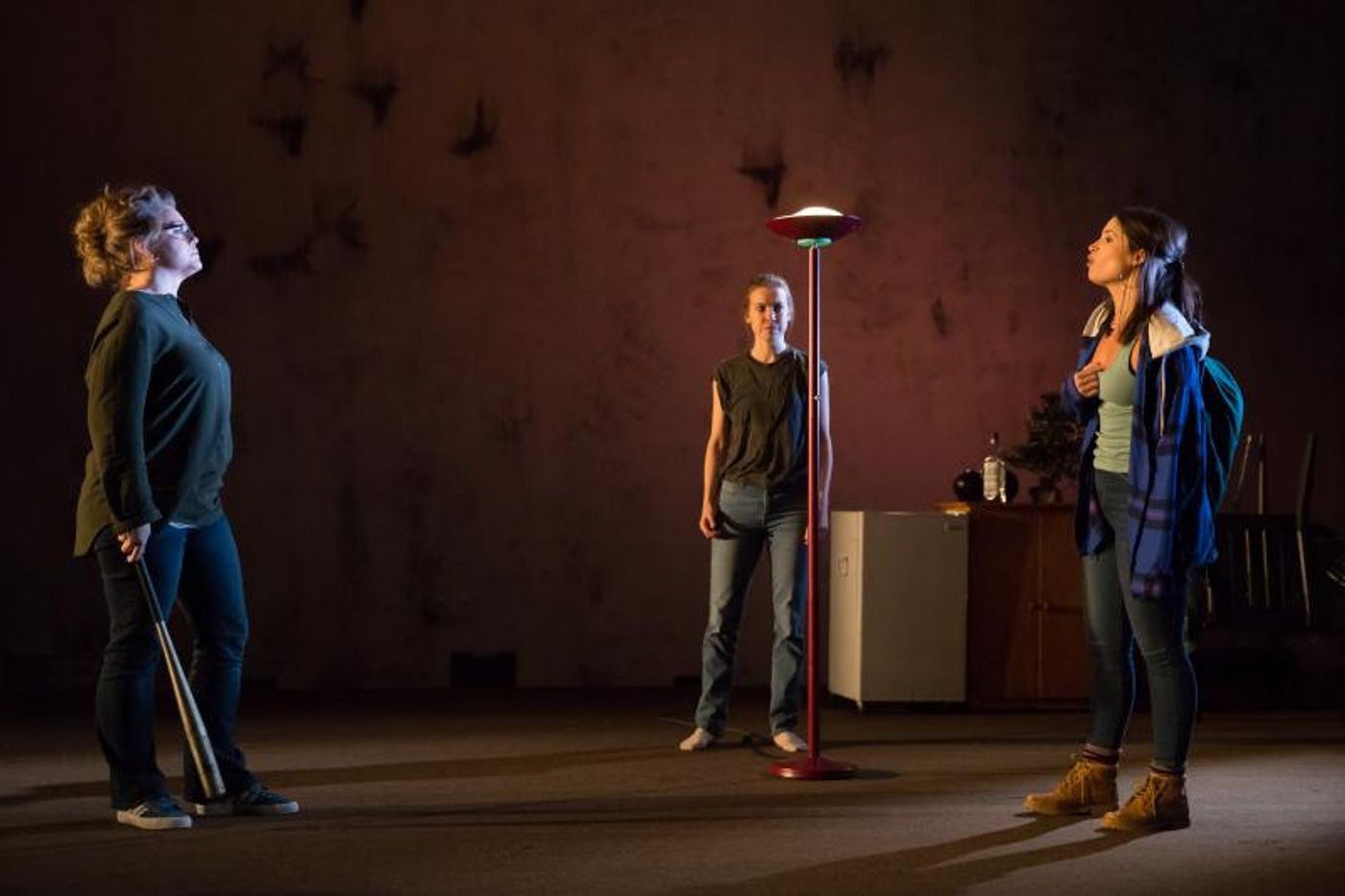Review: Martyna Majok's queens Provides an Intriguing Profile of Contemporary Immigrant Women
"We take care homes," a Polish immigrant living in New York's Borough of Queens bluntly explains to a young newcomer from Ukraine who has yet to get settled.
"Us kinds people, we take care house. Men, they build them and women, they clean them. Take care children. Rest this country handles rest this country. But us, we do homes."

and Ana Reeder (Photo: Erin Baiano)
It's not exactly the American immigrant dream romanticized in history by images of Lady Liberty, but in the most culturally diverse spot on the planet, as shown at LCT3/Lincoln Center Theater in Martyna Majok's understatedly strong drama, queens, it's the opened-eyed reality.
The Polish immigrant is Renia (Ana Reeder), who allows other immigrant women to rent the spartanly furnished basement of her building. The young newcomer is Inna (Sarah Tolan-Mee), whose mother left for New York when she was just a little girl, and, after sending money back home for a little while, hasn't been heard from in twenty years.
As Renia explains the setup to the frightened and defensive woman, she fills in the audience as well. Some just stay overnight, others much longer. Sometimes there's just one resident, other times a large group. She helps them find work as housekeepers and nannies, and they send most of their money home to their families.
And soon the play jumps back from 2016 to December of 2001, when Renia herself was the newcomer, finding a new home in that same basement with Pelagiya (Jessica Love) from Belarus, Aamani (Nadine Malouf) from Afghanistan, as a replacement for the vacating Isabela (Nicole Villamil) from Honduras.
So soon after 9/11, Pelagiya insists that Renia provide not only rent up front, but her story as well.
"We don't gonna say yes to someone what we don't know her story. These days, you don't know who people could be."
With English being the only language the characters have in common, Majok's preciseness in writing different forms of their imperfect grammar and pronunciation provides a poetic mosaic of sound.

(Photo: Erin Baiano)
And while there's a sense of camaraderie between the residents who occupy her play, this is decidedly not a feel-good story climaxing in a tear-jerking bonding moment. Dark humor is a defense against appearing weak by expressing emotions. Particularly noticeable is how the women cannot afford to be generous with their finances, with expenses for household supplies divided to the penny and, as another example, one character marking the levels of her milk on its carton to prevent others from using it.
While focusing on the basement locale (a highlight of designer Laura Jellinek's set is a ceiling that slowly lowers to increase the sense of isolation) the play jumps time and place for additional scenes. There a moment back in Ukraine showing how Inna, before moving to New York, would take care of her roommate Lena's (Andrea Syglowski) children when she dressed sexy and attended parties to meet American tourists looking for brides.
While it's a lengthy play with no linear plot, director Danya Taymor's ensemble is excellent, as the evening provides an intriguing profile of a, quite literally, underground society of people whose job is to go unnoticed.
Reader Reviews
Videos


